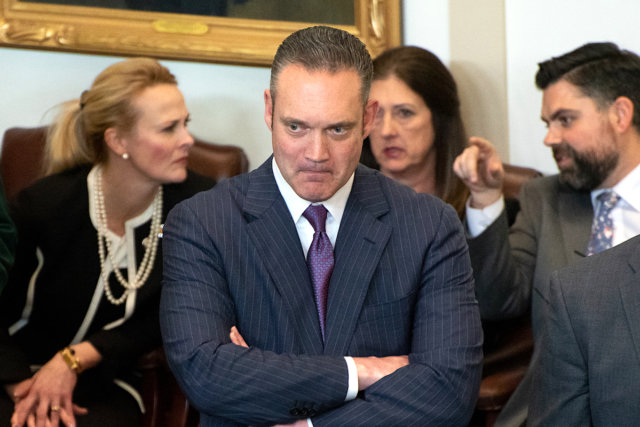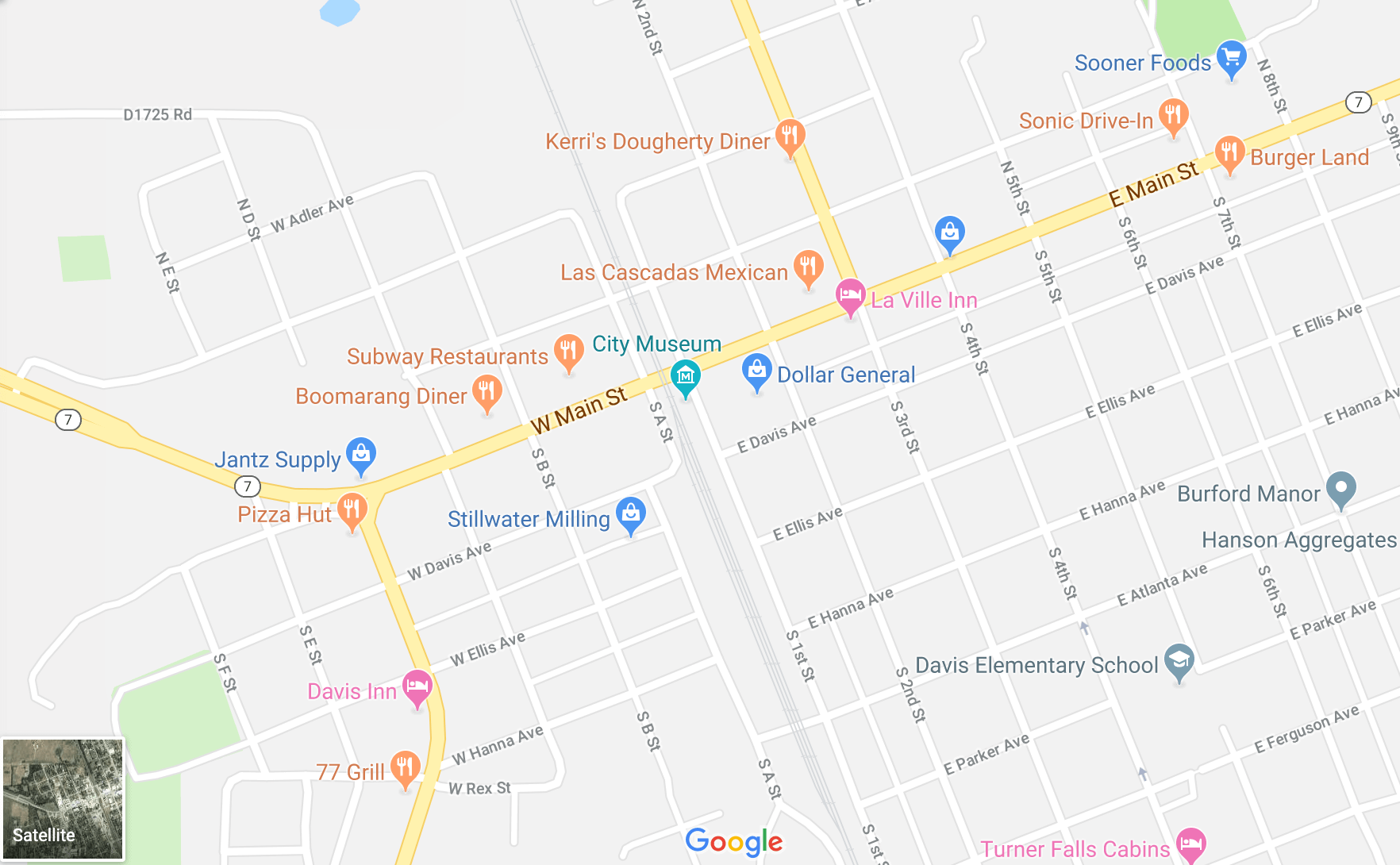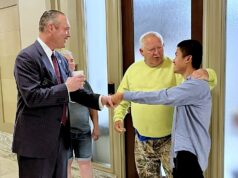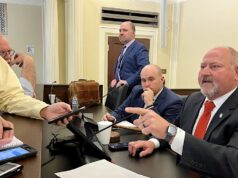

(Update: Senate leadership moved the bill discussed in this story to the Senate Rules Committee on Thursday morning where it was amended to lower the fine from $10,000 to $5,000, reheard and passed on a 10-1 vote.)
A high-priority bill for House Speaker Charles McCall failed Tuesday on a 0-9 vote in the Senate Transportation Committee, sparking frustration among House leadership and concerns from senators that their bills are being stalled in the House as a response.
McCall (R-Atoka) said rumors of retribution were “unfounded” and that bills from senators who voted against his measure are still being considered.
“I think it’s a long stretch to say there has been any type of retribution at this time,” McCall said. “I think the House has heard more Senate bills than the Senate has heard House bills.”
But McCall vowed to amend a Senate bill to include the language from HB 2472, which would have instituted penalties for trains blocking street crossings for more than 10 minutes. The bill prescribed a $10,000 fine for violation but included exemptions to provide additional time for trains switching tracks, separating or coupling.
McCall said the measure was popular with House members and has received strong support from citizens across the state, as evidenced by hundreds of likes and comments on the speaker’s Facebook page.
“It’s a public safety issue. We’ve looked at other states whose legislation has been overturned, and we’ve crafted it in a way that does not overstep or step on federal priorities in law in terms of interstate commerce,” McCall said. “I think it’s a miss on [the Senate’s] part, but I plan to give them another opportunity to reconsider it.”
Multiple senators said they voted against McCall’s measure after learning that other states have had similar legislation overturned in court.
“For me, it was another case of the state of Oklahoma trying to take on the federal government and getting into a costly lawsuit,” said Sen. Bill Coleman (R-Ponca City).
Sen. Larry Boggs (R-Wilburton) agreed, citing lawsuits in other states.
“We have a problem, but that’s not the way to address it,” Boggs said. “I know Rep. McCall is covering his district needs and doing what he’s supposed to, and I respect him for that. But it’s going to get turned around by the courts, cost the state more money and the problem still isn’t going to be solved.”
McCall’s district needs include the town of Davis where trains routinely stop and block main thoroughfares. He said he has heard of children crawling through stopped trains to reach school, and he said he has heard from 911 coordinators who send first responders up to 20 miles out of their way to respond to emergencies.
“Several years ago, an employee at Davis High School had a medical condition where he almost died, and the ambulance was stuck on the other side of a stopped train,” McCall said. “The EMT had to crawl through the train and catch a ride in a truck to get to the employee to provide him emergency medical care. This is a serious public safety and health care issue that exists statewide.”
Both Boggs and Coleman said their remaining bills had already cleared House committees.

Echols: ‘We just bowed to the train lobby’
Multiple people familiar with the situation confirmed to NonDoc that certain Senate bills had been temporarily removed from consideration or transferred to the House Rules Committee in response to Tuesday’s vote.
Some senators who voted against HB 2742 declined to speak about the situation.
“No comment,” said Sen. Adam Pugh (R-Edmond).
One senator not on the Senate Transportation Committee suggested that other legislation was also being held up in the House for similar reasons.
“It’s disappointing that politics and gamesmanship are getting in the way of policy,” the senator said on the condition of anonymity.
House Majority Floor Leader Jon Echols (R-OKC) said the most “disappointing” part of the situation is that Oklahomans are tired of trains blocking key roadways and that a potential solution failed to advance for further negotiation.
“Voting against it in the Senate is final action, so if you don’t like what the bill did, then what you do is strike title and you change it,” Echols said. “But what they are saying is five-hour delays are OK. What they are saying is putting people’s lives at risk (is OK).”
Echols said delays in Davis can be up to five hours, and he said trains also routinely block intersections in Oklahoma City.
“We just bowed to the train lobby, which is built with out-of-state multi-national corporations,” Echols said. “Other states have much stricter regulations than we do. To say that you voted against it because it was too harsh is a cop-out. All you had to do was give another option, but right now it’s the only option on the table, and it’s really disappointing to Oklahoma citizens.”
In an interview, Coleman did offer another option: allowing emergency management operators to communicate directly with rail companies.
“As I understand it right now, I don’t believe that communication takes place,” Coleman said. “The trains stopping in intersections is a problem, and we need to address it.”
But Echols said “train barons” were able to derail the entire conversation.
“They don’t care about Oklahoma,” Echols said. “They came into the state, they offered no alternatives, and for some reason we sided with international corporations rather than Oklahoma citizens.”
Two phone messages left for Lori Peterson were not returned Wednesday. Peterson represents the Oklahoma Railway Association and BNSF Railroad.
(Correction: This story was updated at 10:25 a.m. Thursday, April 11, to reference the bill number properly. NonDoc regrets the error.)




















